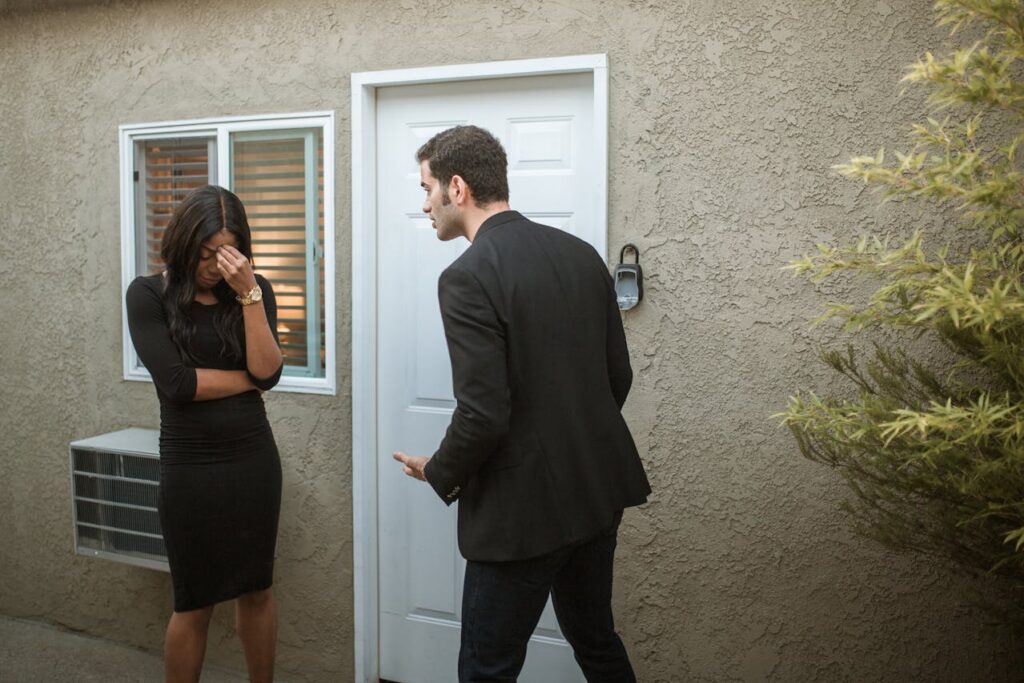Couples therapy is an essential resource for partners seeking to improve their relationship, resolve conflicts, or navigate difficult situations. However, diving into therapy unprepared may limit its potential benefits. Asking the right questions before starting therapy can ensure that you and your partner are on the same page and set the foundation for a productive experience. Here are ten crucial questions to ask before beginning couples therapy, along with a comprehensive explanation of each.
1. What Are Our Goals For Therapy?
Every relationship is different, and so are the reasons for seeking therapy. Understanding the specific goals both partners have is crucial for making progress. One person may want to improve communication, while the other may wish to work on resolving conflicts. Defining these objectives will help the therapist tailor the sessions to meet your unique needs.
Why It Matters:
Without a clear sense of what you hope to achieve, therapy sessions can feel aimless. Setting goals ensures that both partners are working towards shared outcomes, whether it’s rebuilding trust after infidelity, learning to manage differences, or simply improving intimacy and connection.
Key Considerations:
- Are the goals realistic and attainable?
- Do both partners agree on these objectives?
- How will you measure progress in achieving these goals?
2. Are We Both Equally Committed To The Therapy Process?
Commitment from both partners is essential for couples therapy to succeed. If one partner is reluctant or not fully engaged, progress can be slow or uneven. It’s important to have an honest conversation about your respective levels of commitment to the process before starting.
Why It Matters:
Therapy requires emotional investment, vulnerability, and a willingness to change. If only one partner is committed, the therapy process may not be effective, and it could lead to further frustration and resentment.
Key Considerations:
- What does “commitment” to therapy mean to each partner?
- Are both partners prepared to make changes and compromises?
3. Are We Open To Confronting Uncomfortable Truths?
Couples therapy often brings up difficult emotions, past grievances, and uncomfortable truths about yourself and your relationship. It’s essential to be prepared to face these issues head-on. Avoiding difficult conversations or deflecting blame will prevent meaningful progress.
Why It Matters:
Therapy is about growth, and growth can sometimes be uncomfortable. If either partner is unwilling to face the reality of certain issues, the therapy may become unproductive.
Key Considerations:
- Are there specific topics that either of you is avoiding?
- How will you handle emotional discomfort during therapy sessions?
4. What Is Our Communication Style, And How Does It Affect Our Relationship?
One of the primary reasons couples seek therapy is to improve communication. Identifying your communication styles—whether you’re passive, aggressive, or assertive—can reveal how conflicts arise and escalate. Ask yourselves how you typically handle disagreements and what improvements you hope to make in this area.
Why It Matters:
Poor communication is at the root of many relationship problems. Understanding how you communicate, and how this style may be contributing to issues, allows the therapist to provide specific strategies for improvement.
Key Considerations:
- Do you communicate clearly and respectfully, or does your communication lead to misunderstandings?
- Are there specific communication patterns (e.g., yelling, stonewalling) that need addressing?
5. What Are Our Expectations Of The Therapist?
Couples therapy is a collaborative process. While the therapist acts as a guide, it’s important to have a shared understanding of what role they will play. Some couples expect the therapist to offer advice, while others may prefer a more hands-off approach where they facilitate conversation without intervening much.
Why it matters:
Misaligned expectations can lead to dissatisfaction with therapy. Being clear about what you hope to get from the therapist ensures that both parties have realistic expectations and can hold the therapist accountable for the progress.
Key Considerations:
- Do you expect the therapist to be direct or more passive?
- Are you looking for concrete strategies, or do you prefer emotional exploration?

6. Are We Ready To Make Changes Outside Of Therapy?
Couples therapy provides a safe space to discuss issues, but the real work happens outside of the therapist’s office. Both partners must be willing to apply what they’ve learned in therapy to their daily lives. This requires commitment to personal growth, behavioral changes, and a sustained effort to improve the relationship.
Why It Matters:
Therapy is not a magical cure for relationship problems. To see real progress, both partners need to take action outside of sessions, whether that means practicing new communication techniques, changing destructive habits, or spending more quality time together.
Key Considerations:
- What specific actions will you both commit to outside of therapy?
- How will you hold each other accountable for making these changes?
7. What Role Do Individual Issues Play In Our Relationship Challenges?
Often, relationship problems are rooted in individual issues such as past trauma, mental health concerns, or unresolved personal struggles. It’s important to explore how personal factors might be affecting the relationship and discuss whether individual therapy might also be necessary.
Why It Matters:
Couples therapy may not fully address personal issues that contribute to relationship difficulties. By understanding how individual factors play a role, the therapist can recommend a combination of couple and individual therapy if needed.
Key Considerations:
- Are there personal issues that need to be addressed separately?
- How will you support each other in individual growth while working on the relationship?
8. How Will We Handle Setbacks During Therapy?
Couples therapy is not a linear process, and setbacks are common. It’s important to have a plan for how you will handle moments when progress seems slow or when old patterns resurface. Discussing how you’ll stay committed through these tough times is essential for maintaining momentum.
Why It Matters:
Therapy often brings up unresolved issues, which can lead to tension and discomfort. Having a plan for handling these challenges will keep you from becoming discouraged and giving up on the process.
Key Considerations:
- What strategies will you use to cope with setbacks or difficult sessions?
- How will you celebrate small victories and acknowledge progress, even when it feels slow?
9. Are We Willing To Take Responsibility For Our Actions And Behaviors?
Couples therapy requires both partners to take responsibility for their actions, words, and behaviors within the relationship. Blaming the other person for all of the problems will only hinder progress. Both individuals must be willing to reflect on their behavior and make the necessary changes.
Why It Matters:
Accountability is key to growth in therapy. If one or both partners are unwilling to take responsibility, therapy will not be effective in resolving conflicts or improving the relationship.
Key Considerations:
- How willing are you to accept feedback and make changes based on it?
- Are you prepared to own your role in the relationship dynamics, whether positive or negative?
10. What Are Our Expectations For The Future Of Our Relationship?
It’s important to have a shared vision for the future of your relationship. Are both partners committed to staying together, or is therapy a last-ditch effort to save the relationship? Discussing your expectations for the long term can clarify whether you are both aligned in your goals.
Why It Matters:
Couples often come into therapy with different visions for the future. Clarifying whether both individuals want the same outcome—whether that’s staying together or parting ways amicably—can help guide the therapy process.
Key Considerations:
- Are you both committed to long-term change and improvement or is this a temporary fix?
- How will you navigate the possibility of ending the relationship if that becomes the best course of action?
Conclusion
Couples therapy can be a transformative experience, but its success largely depends on the willingness of both partners to engage with the process fully. Asking these 10 critical questions before starting therapy will not only help you approach the sessions with clarity but also ensure that you and your partner have a shared understanding of what to expect.
Setting clear goals, being open to uncomfortable truths, taking responsibility for your actions, and maintaining commitment are just a few of the ways that couples can maximize the benefits of therapy. Whether you aim to rebuild trust, improve communication, or simply strengthen your bond, being prepared with the right questions will set the stage for meaningful progress.
If you feel stuck at any point in the process, it’s important to discuss these challenges openly with your therapist. Couples therapy is a journey that often comes with bumps along the way, but with the right mindset, dedication, and support, it can lead to deeper connection and lasting positive change.
Unlock Your Relationship Success With Couples Therapy At Pivot Counseling
Are you struggling to navigate challenges in your relationship and looking for effective ways to strengthen your connection? You’re not alone, and we’re here to help! At Pivot Counseling, our team of compassionate and knowledgeable professionals is dedicated to supporting you through personalized couples therapy, ensuring you find the right approach to enhance your relationship and improve your quality of life together.
Whether you’re seeking to improve communication, manage conflicts, or navigate daily challenges more effectively, we offer an evidence-based approach tailored to your specific relationship needs. Imagine experiencing greater understanding, emotional balance, and a deeper connection with your partner. Our experts are committed to guiding you through this transformative journey, providing the tools and strategies needed for long-term success.
Why wait to take control of your relationship? Contact us today to schedule a couples therapy session at Pivot Counseling and explore the options that best suit your needs. Let us help you achieve greater emotional well-being, stronger communication, and a happier future together. Your brighter relationship starts today!
Disclaimer:
The information on this website is for informational purposes only and not a substitute for professional medical advice, diagnosis, or treatment. Always seek the advice of your physician or qualified health provider with any questions regarding a medical condition. Pivot Counseling makes no warranties about the accuracy, reliability, or completeness of the information on this site. Any reliance you place on such information is strictly at your own risk. Licensed professionals provide services, but individual results may vary. In no event will Pivot Counseling be liable for any damages arising out of or in connection with the use of this website. By using this website, you agree to these terms. For specific concerns, please contact us directly.



